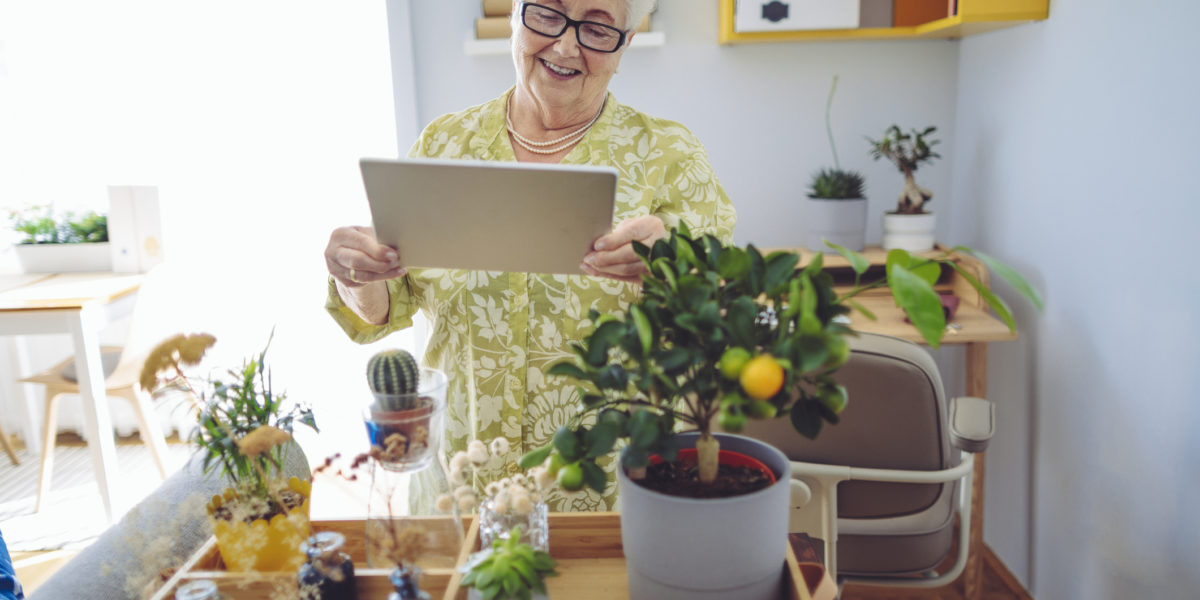The risk of falls increases with age. It may be necessary to change the environment in your home to make it easier and safer to get around. Each year four out of every 10 people over the age of 65 will fall. Every 11 seconds, an older adult is treated in the emergency room for a fall; every 19 minutes, an older adult dies from a fall.
ChristianaCare HomeHealth understands the healing power of home. Call 1-888-862-0001 to learn about our full range of professional and support services available in Delaware.
Often these falls happen at home and can lead to serious injury. The good news is that many of these incidents can be prevented.
These tips can help prevent accidental falls at home:
Entryway
- Have a qualified individual install a ramp.
- A single step should have a grab bar for support.
- Place a railing on both sides of stairways.
- Make sure light switches are within reach.
- Consider placing nightlights or automatic light sensors in hallways.
Living Room
- Keep it brightly lit to avoid trips over hard-to-see objects.
- Consider changing round door knobs to lever handles.
- Consider a chair with arms for added safety.
- Use nonskid pads for furniture on hardwood floors.
- All cords should be placed along walls, not under rugs or across walking areas.
Speak with your health care provider and click here for more ways to prevent falls.
Kitchen
- Keep all pot handles turned inward on the stove.
- Place frequently used items within easy reach.
- Never stand on a chair to reach a high shelf.
- Pour beverages into small pitchers so they are easier to carry.
- Sit in a sturdy chair when preparing meals to save energy.
Bathroom
- Consider placing nightlights or automatic light sensors in case you need to get up in the middle of the night.
- Leave bathroom door unlocked.
- Keep a bell or phone with you to call for help.
- Never use a towel bar for support. Consider grab bars and safety rails in the shower and tub and near the toilet.
- Consider a shower chair or hand-held shower.
- Use a long-handled sponge to wash hard-to-reach areas.
- Add a non-slip bathmat on the floor of the tub or shower and a nonskid rug outside of it. Never use a towel on the floor.
- Remove clutter from all surfaces.
Bedroom
- Keep a lamp within reach of your bed and consider nightlights or automatic light sensors in case you need to get up in the middle of the night.
- Consider a bed rail to help with getting out of bed.
- Consider a bedside commode for nighttime use.
- Keep a bell or phone at your bedside to call for help.
- Close doors and drawers after use.
- Place frequently used clothing in top drawers for easier access.
- Arrange blankets on top of the bed to avoid tripping when getting out of bed or walking in the bedroom.
Laundry
- Consider moving your washer and dryer out of the basement.
- Consider using a laundry bag with a shoulder strap instead of a basket.
- Consider using laundry pods instead of liquid detergent to avoid heavy lifting.
Medications
- Be sure your doctor has a complete list of all the medications you are taking including over-the-counter medications such as vitamins, pain relievers and herbal/natural supplements.
- Check with your doctor if your medication causes you to feel dizzy or light-headed. Use caution when moving from a seated to standing position. Some medications may place you at a higher risk for falls (examples: heart, blood pressure, sleeping and water pills).
- Keep your medicine list with you at all times, including when you leave home. Place this list close to your phone or save it to your phone in case of an emergency.
Clothing
- Clean your eyeglass lenses frequently and keep fresh batteries in your hearing aid.
- Sit down on a sturdy surface when getting dressed.
- Wear short garments or pants rather than long dresses and robes.
- Wear low-heel or no-heel shoes that fit well.
- Wear sturdy slippers that have a back (not slip-ons) and nonskid soles.
- Try wearing shoes with elastic laces or Velcro closures.
Speak with your health care provider and click here for more ways to prevent falls.



